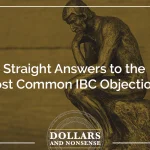Ready for the 50 best Rich Dad Poor Dad quotes? We love the Robert Kiyosaki book and have collected some of our favorite quotables here for your enjoyment. If you have never read the book, you can get it here. If you have, see the rest of this post to refresh your memory on some of the best lines in the book.
As you may know, Rich Dad Poor Dad is a New York Times bestselling finance book written by American businessman Robert Kiyosaki and co-authored by American businesswoman Sharon Lechter. It was published in 1997 and became a global bestseller. It was translated into over 51 languages and sold more than 32 million copies worldwide. More than 20 years later, it is still considered one of the top personal finance books.
Why Rich Dad Poor Dad is Different
Rich Dad Poor Dad draws on Kiyosaki’s experience growing up and observing how his father (Poor Dad) and the father of his best friend (Rich Dad) managed their finances.
The book differs from other financial self-help books in that it does not provide a step-by-step guide to improve a financial situation.
Instead, it shares important wealth-building lessons Kiyosaki learned from both dads and gives general advice to get readers in the wealth-building mindset. Essentially, it provides a framework for readers looking to get started on their journeys towards financial freedom while leaving room to create personal financial objectives. It also stresses the importance of financial literacy and independence, especially for those looking to improve their financial situation.
The book is divided into 10 chapters and is highly quotable. The six chapters following the introduction outline the main lesson Kiyosaki learned from the Rich Dad and mistakes made by the Poor Dad. The main themes discussed in these sections include:
- The difference between how Kiyosaki believes the “poor” and rich work for money. He believes that poorer people work for their money, whereas rich people have money to work for them.
- The difference between assets and liabilities. An asset is something that brings value, or money, into your life. A liability is something that takes money away from you.
- The importance of financial education and aptitude (i.e how much money you keep, how to make money work for you, etc.).
The next chapter outlines obstacles that Kiyosaki believes hinders people’s ability to cultivate wealth. These include fear, cynicism, laziness, bad habits, and arrogance.
The final two chapters discuss ways to improve your financial education and get started on the path towards financial success.
Below are the 50 most inspiring Rich Dad Poor Dad quotes. Reading them will give you instant access to the theme of the book, remind you of some of its best advice, and many of its most important lessons:
The 50 Best Rich Dad Poor Dad Quotes
- A person can be highly educated, professionally successful, and financially illiterate.
- Money comes and goes, but if you have the education about how money works, you gain power over it and can begin building wealth.
- The primary difference between a rich person and a poor person is how they manage fear.
- Failure inspires winners. Failure defeats losers.
- Cash flow tells the story of how a person handles money.
- To be a successful business owner and investor, you have to be emotionally neutral to winning and losing.
- Emotions are what make us human. Make us real. The word ’emotion’ stands for energy in motion. Be truthful about your emotions, and use your mind and emotions in your favor, not against yourself.
- The single most powerful asset we all have is our mind. If it is trained well, it can create enormous wealth in what seems to be an instant.
- If you realize that you’re the problem, then you can change yourself, learn something and grow wiser. Don’t blame other people for your problems.
- I am concerned that too many people are focused too much on money and not on their greatest wealth, which is their education.
- Money without financial intelligence is money soon gone.
- Rich people acquire assets. The poor and middle class acquire liabilities that they think are assets.
- There is always a risk, so learn to manage risk instead of avoiding it.
- Find the game where you can win, and then commit your life to play it, and play to win.
- In the real world, the smartest people are people who make mistakes and learn. In school, the smartest people don’t make mistakes.
- Winners are not afraid of losing. But losers are. Failure is part of the process of success. People who avoid failure also avoid success.
- You’re only poor if you give up. The most important thing is that you did something. Most people only talk and dream of getting rich. You’ve done something.
- It’s fear that keeps most people working at a job: the fear of not paying their bills, the fear of being fired, the fear of not having enough money, and the fear of starting over. That’s the price of studying to learn a profession or trade, and then working for money. Most people become a slave to money – and then get angry at their boss.
- An important distinction is that rich people buy luxuries last, while the poor and middle class tend to buy luxuries first.
- The philosophy of the rich and the poor is this: the rich invest their money and spend what is left. The poor spend their money and invest what is left.
- In today’s fast-changing world, it’s not so much what you know anymore that counts, because often what you know is old. It is how fast you learn. That skill is priceless.
- It is not gambling if you know what you’re doing. It is gambling if you’re just throwing money into a deal and praying.
- Sight is what you see with your eyes, vision is what you see with your mind.
- Keep expenses low, reduce liabilities, and diligently build a base of solid assets.
- Most people never get wealthy simply because they are not trained financially to recognize opportunities right in front of them.
- People’s lives are forever controlled by two emotions: fear and greed.
- Leadership is what you need to learn next.
- The poor and the middle-class work for money. The rich have money work for them.
- An intelligent person hires people who are more intelligent than he is.
- They get up every day and go work for money, not taking the time to ask the question, ‘Is there another way?
- An asset is something that puts money in my pocket. A liability is something that takes money out of my pocket.
- Sometimes you win and sometimes you learn. But have fun. Most people never win because they’re more afraid of losing.
- Being able to know when to make quick decisions is an important skill.
- Busy people are often the laziest.
- The key to financial freedom and great wealth is a person’s ability to convert earned income into passive and/or portfolio income.
- We learn to walk by falling down. If we never fell down, we would never walk.
- Most people fail to realize that in life, it’s not how much money you make, it’s how much money you keep.
- If fear is too strong, the genius is suppressed.
- When you come to the boundaries of what you know, it is time to make some mistakes.
- The richest people in the world build networks; everyone else is trained to look for work.
- If you work for money, you give them power to your employer. If money works for you, you keep the power and control it.
- Skills make you rich, not theories.
- The more a person seeks security, the more that person gives up control over his life.
- One of the most important things a real investor needs to say is this; “I want my money back and I also want to keep my investments.
- If you’re still doing what mommy and daddy said for you to do (go to school, get a job, and save money), you’re losing.
- People who lack internal fortitude often become victims of those who have self-discipline.
- It’s what is in your head that determines what is in your hands.
- Proper physical exercise increases your chances for health, and proper mental exercise increases your chances for wealth.
- Financial struggle is often directly the result of people working all their lives for someone else.
- Mind your business. Don’t spend your whole life working for someone else.
More about Rich Dad Poor Dad author Robert Kiyosaki
Kiyosaki is an American businessman and author. He is a fourth-generation Japanese American born and raised in Hawaii. The author spent the beginning of his educational career in Marine and Naval Academies. Then he attended the United States Merchant Marine Academy in New York and graduated with a Bachelor of Science degree. After graduating, he spent a short time working for Standard Oil before joining the Marine Corps where he served as a helicopter gunship pilot during the Vietnam War. After this, he enrolled in an MBA program and was honorably discharged from the Marine Corps shortly afterward.
Throughout the 70s and 80s, Kiyosaki became more heavily involved in the business world and embarked on several business ventures. These included working as a Xerox salesman, creating a company that manufactured nylon and velcro surfer wallets, running a retail business that made clothes and accessories for heavy metal rock bands, cofounding a business education company, and more.
He wrote his first book in the early 90s, wrote Rich Dad Poor Dad, and launched a business and financial education company, Cashflow Technologies, Inc., in the late 90s to market his educational books and board games. The company continues to provide financial education through seminars, books, and videos today.






